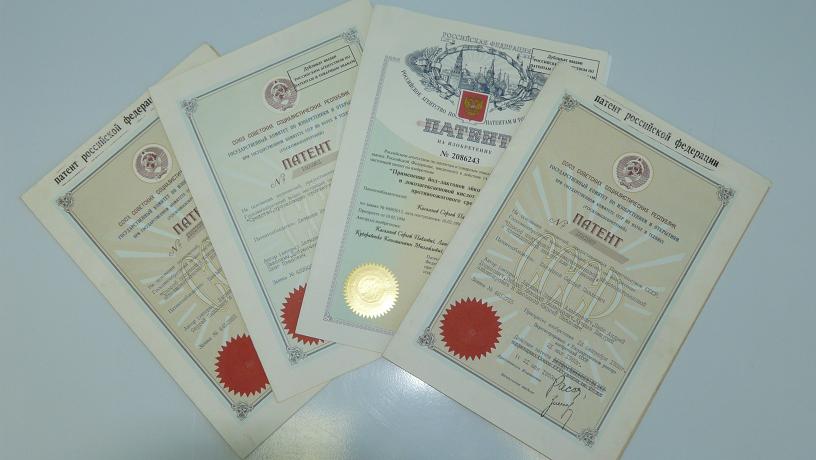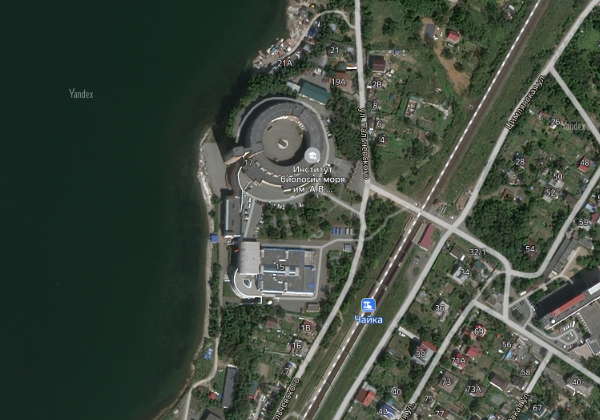Список ознакомительной информации:
THE ALKYL AND ALK-I-ENYL GLYCEROLS IN THE LIVER OF RATS FED LONG-CHAIN ALCOHOLS OR ALKYL GLYCEROLS
Z.L. BANDI and H.K. MANGOLD and G. HOLMER and E. AAES-JBRGENSEN
Febs Letters Vol. 12, N 4, 217:220, 1971
Abstract: Dietary long-chain alcohols and alkyl glycerols, including polyunsaturated compounds, are incorporated into the alkyl and alk-l-enyl moieties of the ionic alkoxylipids of rat liver, whereas polyunsaturated fatty acids are not.AGE-1971-печень крысы.pdf
Composition of O-Alkyl and O-AIk-l-enyl Moieties in the Glycerolipids of the Human Adrenal
HSIANG JU LIN, M.S.F. LIE KEN JIE, CLARA LAI HING LEE, and DANIEL HONG SENG LEE
LIPIDS, VOL. 12, N 7, 620:625, 1976
Abstract: A comparison of human adult and fetal adrenals with respect to their levels of glyceryl ether lipids and other lipid components is reported. Fetal glands contained significantly lower levels of alk-l- enyl phosphoglycerides and of choles- terol. Neutral glyceryl ether diesters, and ethanolamine and choline phosphoglycerides were isolated from adult adrenal tissue. The composition of the O-alkylglycerol groups in these lipid fractions was obtained by means of gas chromatography of the trimethylsilyl ethers and diacetyl derivatives; O-alk-l-enyl glycerols were analyzed as their diacetates. About one-half of the alkyl and alk-l-enylglycerol moieties present in glyceryl ether diesters contained hydrocarbon side chains with 20, 22, or 24 carbon atoms. Long hydrocarbon chains (C19-24) were also found in the O-alkyl glycerol moieties present in the total lipids of fetal adrenals.AGE-1977-надпочечн-человек.pdf
Phospholipid Studies of Marine Organisms: of the Sponge Tethya auranfia 1
Glenn M. Smith and Corl Djerossi
LIPIDS, Vol. 22, N 4, 236:240, 1987
LIPIDS, Vol. 22, N 4, 236:240, 1987
Abstract: The novel unesterified alkyl glycerol monoethers, (2S)-I-(hexadecyloxy)-2,3-propanediol (1), (2SM-(16-methylhepta-decyloxy}-2,3-propanediol (2) and (2S)-l-(15-methylhepta- decyloxy)-2,3-propanediol (3) were isolated from the marine sponge Tethya aurantia and were characterized by spectroscopic methods. These three saturated ethers as well as a series of alk-l'-enyl glycerol monoethers were also encountered in the phospholipids of the same sponge after reduction with LiAIH~. Incorporation experiments with dissociated cells of T. aurantia indicated that [1-'4C] - hexadecanol was incorporated into the unesterified alkylglycerol monoethers.AGE-1987-Губка-Djerassi.pdf
Dietary Supplementation with Ether-Linked Lipids and Tissue Lipid Composition
Merle L. Blank, Edgar A. Cress, Zigrida L. Smith and Fred Snyder
LIPIDS, Vol. 26, N 2, 166:169, 1991
LIPIDS, Vol. 26, N 2, 166:169, 1991
Abstract: The goal of this investigation was to determine the effect of an alkylglycerol dietary supplement on the lipid composition of several major organs. Lipids from kidney, liver, and lung tissues of rats on a laboratory chow diet Icontrols) were compared to lipids from the same tissues of rats that had received oral supplements (300-600 mg/day} of 1-O-alkyl-2,3-diacetyl-sn-glycerol (alkyl groups were 65% 18:1 and 17% 16:1) for six days. Incorporation of the alkylglycerol into tissue lipids was indicated by both the presence of a neutral lipid in liver that had the same chromatographic migration as alkyldiacylglycerols and by a substantial increase (~150% of controls) in the octadecenyl group of the alk-l-enyl- and alkyl-glycerol side chains derived from total phospholipids of all three tissues. Compared to controls, there was a significant increase in the amount of alkylacylglycerophosphocholine in all three tissues of the alkylglycerol supplemented group. Total lipids, total phospholipid phosphorus, or the distribution of phospholipid classes (except for small differences in lung tissue) were not affected by the dietary supplement. The increase in ether lipids was offset by a corresponding decrease in the diacyl subclass in tissues from animals on the alkyldiacetylglycerol supplement. Our results indicate that the amount of ether-linked glycerolipids in rat tissues can be easily increased with dietary supplements of alkylglycerols.AGE-1991-Snyder-крыса.pdf
Alkyl Glycerol Monoethers in the Marine Sponge Desmapsamma anchorata
Leovigildo Ouijano, Francisco Cruz, Irma Navarrete, Patricia Gdmez c and Tirso Rios
LIPIDS, Vol. 29, no. 10 731:734 1994
Abstract: 1-O-Hexadecylglycerol (chimyl alcohol), 1-O-heptadecyl-glycerol and 1-O-octadecylglycerol (batyl alcohol) have been identified as the major native constituents of a mixture of free alkyl glycerol ethers isolated from the contained water and the methanolic extract of the sponge Desmapsamma anchorata. Minor components were the free C14 , C15 , C19 , C20 and C21 alkyl glycerol monoethers. The alkyl glycerol monoethers were ana- lyzed and identified by gaschromatography/mass spec-trometry of their isopropylidene derivatives. This is the first report on the occurrence of free Cm, Cm, C20 and C21 Rlkyl glycerol monoethers in a sponge. AGE-1994-Губка.pdf
Abstract: 1-O-Hexadecylglycerol (chimyl alcohol), 1-O-heptadecyl-glycerol and 1-O-octadecylglycerol (batyl alcohol) have been identified as the major native constituents of a mixture of free alkyl glycerol ethers isolated from the contained water and the methanolic extract of the sponge Desmapsamma anchorata. Minor components were the free C14 , C15 , C19 , C20 and C21 alkyl glycerol monoethers. The alkyl glycerol monoethers were ana- lyzed and identified by gaschromatography/mass spec-trometry of their isopropylidene derivatives. This is the first report on the occurrence of free Cm, Cm, C20 and C21 Rlkyl glycerol monoethers in a sponge. AGE-1994-Губка.pdf
1-O-Alkyl-2-(ω-oxo)acyl-sn-glycerols from Shark Oil and Human Milk Fat Are Potential Precursors of PAF Mimics and GHB
Karsten Hartvigsena,b Amir Ravandib, Richard Harkewiczc, Hiroshi Kamidod, KlausBukhavea, Gunhild Hølmera and Arnis Kuksisb
Lipids, Vol. 41, no. 7 675:693 2006
Abstract: This study examines the feasibility that peroxidation and lipolysis of 1-O-alkyl-2,3-diacyl-sn-glycerols (DAGE) found in shark liver oil and human milk fat constitutes a potential source of dietary precursors of platelet activating factor (PAF) mimics and of gamma-hydroxybutyrate (GHB). Purified DAGE were converted into 1-O-alkyl-2-acyl-sn-glycerols by pancreatic lipase, without isomerization, and transformed into 1-O-alkyl-2-oxoacyl-sn-glycerols by mild autooxidation. The various core aldehydes without derivatization, as well as the corresponding dinitrophenylhydrazones, were characterized by chromatographic retention time and diagnostic ions by online electrospray mass spectrometry. Core aldehydes of oxidized shark liver oil yielded 23 molecular species of 1-O-alkyl-sn-glycerols with short-chain sn-2 oxoacyl groups, ranging from 4 to 13 carbons, some unsaturated. Autooxidation of human milk fat yielded 1-O-octadecyl-2-(9-oxo)nonanoyl-sn-glycerol, as the major core aldehyde. Because diradylglycerols with short fatty chains are absorbed in the intestine and react with cytidine diphosphate-choline in the enterocytes, it is concluded that formation of such PAF mimics as 1-O-alkyl-2-(ω oxo)acyl-sn-glycerophosphocholine from unsaturated dietary DAGE is a realistic possibility. Likewise, a C4 core alcohol produced by aldol-keto reduction of a C4 core aldehyde constitutes a dietary precursor of the neuromodulator and recreational drug GHB, which has not been previously pointed out.AGE-2006-акула-женское молоко.pdf
Abstract: This study examines the feasibility that peroxidation and lipolysis of 1-O-alkyl-2,3-diacyl-sn-glycerols (DAGE) found in shark liver oil and human milk fat constitutes a potential source of dietary precursors of platelet activating factor (PAF) mimics and of gamma-hydroxybutyrate (GHB). Purified DAGE were converted into 1-O-alkyl-2-acyl-sn-glycerols by pancreatic lipase, without isomerization, and transformed into 1-O-alkyl-2-oxoacyl-sn-glycerols by mild autooxidation. The various core aldehydes without derivatization, as well as the corresponding dinitrophenylhydrazones, were characterized by chromatographic retention time and diagnostic ions by online electrospray mass spectrometry. Core aldehydes of oxidized shark liver oil yielded 23 molecular species of 1-O-alkyl-sn-glycerols with short-chain sn-2 oxoacyl groups, ranging from 4 to 13 carbons, some unsaturated. Autooxidation of human milk fat yielded 1-O-octadecyl-2-(9-oxo)nonanoyl-sn-glycerol, as the major core aldehyde. Because diradylglycerols with short fatty chains are absorbed in the intestine and react with cytidine diphosphate-choline in the enterocytes, it is concluded that formation of such PAF mimics as 1-O-alkyl-2-(ω oxo)acyl-sn-glycerophosphocholine from unsaturated dietary DAGE is a realistic possibility. Likewise, a C4 core alcohol produced by aldol-keto reduction of a C4 core aldehyde constitutes a dietary precursor of the neuromodulator and recreational drug GHB, which has not been previously pointed out.AGE-2006-акула-женское молоко.pdf
The Intestinal Absorption and Metabolism of Chimyl Alcohol in the Rat.
Sune Bergstrom and Rolf Blomstand Acta Physiologica Scandinavica Vol.38 Issue 2, 166:172, 1957
Abstract: Summary. Unanaesthetized rats provided with a thoracic duct fistula were fed [14C]-labeled chimyl alcohol (α-[1-14C]-hexadecylglyceryl ether) dissolved in olive oil.The labelled chimyl alcohol was absorbed to 95 per cent. The remainder was recovered in the unsaponifiable fraction of fecal lipids. About 50 per cent of the absorbed activity was recovered in the lymph lipids.In the lymph lipids about half of the radioactivity was associated with palmitic acid, indicating a splitting of the ether bond of the chimyl alcohol and subsequently oxidation of the cetyl alcohol moiety to palmitic acid in the mucosa cells. The palmitic acid was incorporated into the lymph triglycerides and phospholipids in the usual way.The other half of the activity in the lymph was present as chimyl alcohol about half of which was present as free chimyl alcohol. The remainder of the chimyl alcohol had been esterified during the absorption process and behaved chromatographically as a triglyceride that yielded chimyl alcohol after alkaline saponification.Chimyl alcohol is thus well absorbed but extensively metabolized already during the absorption process.АГЭ-1957-химил.-матабол.doc
Abstract: Summary. Unanaesthetized rats provided with a thoracic duct fistula were fed [14C]-labeled chimyl alcohol (α-[1-14C]-hexadecylglyceryl ether) dissolved in olive oil.The labelled chimyl alcohol was absorbed to 95 per cent. The remainder was recovered in the unsaponifiable fraction of fecal lipids. About 50 per cent of the absorbed activity was recovered in the lymph lipids.In the lymph lipids about half of the radioactivity was associated with palmitic acid, indicating a splitting of the ether bond of the chimyl alcohol and subsequently oxidation of the cetyl alcohol moiety to palmitic acid in the mucosa cells. The palmitic acid was incorporated into the lymph triglycerides and phospholipids in the usual way.The other half of the activity in the lymph was present as chimyl alcohol about half of which was present as free chimyl alcohol. The remainder of the chimyl alcohol had been esterified during the absorption process and behaved chromatographically as a triglyceride that yielded chimyl alcohol after alkaline saponification.Chimyl alcohol is thus well absorbed but extensively metabolized already during the absorption process.АГЭ-1957-химил.-матабол.doc
Alkoxyglycerols in Irradiation Treatment
J. E. Ballou
NATURE Vol. 193, 112 (1962)АГЭ-1962-R-терапия.pdf
- АГЭ-1963-АГЭ+Плазмалогены.pdf
- АГЭ-1964-батил_селахил_рак.pdf
- АГЭ-1965-моллюски.pdf
- АГЭ-1966-батиловый спирт.doc
- АГЭ-1968-гематопоэз.PDF
- АГЭ-1969-Brohult-радиация-патент.pdf
- АГЭ-1970-химил-метаб_печень.pdf
- АГЭ-1971-этаноламины-биосинт РАФ.pdf
- АГЭ-1972-Snyder-Mangold.pdf
- АГЭ-1972-катаболизм-крыса.pdf
- АГЭ-1972-синтез алк-РАФ.pdf
- АГЭ-1977-алкил_виды_РС_сердце.pdf
- АГЭ-1977-ТСХ-длина цепи.doc
- АГЭ-1978-метокси-стим_иммунитет.doc
- АГЭ-1978-рыбы-Hayashi.pdf
- АГЭ-1980-метаболизм-рак.pdf
- АГЭ-1980-метокси-рак.doc
- АГЭ-1981-химил-метаболизм.doc
- АГЭ-1982-химил-рост клеток.doc
- АГЭ-1983-химил-образ-сердце.pdf
- АГЭ-1984-осьминог-Исай.pdf
- АГЭ-1985-кальмар-Hayashi.pdf
- АГЭ-1985-очистка АГЭ-оксидазы.pdf
- АГЭ-1987-кальмар-Hayashi.pdf
- АГЭ-1987-химил-простейшие.doc
- АГЭ-1989-химил-лейкемия.pdf
- АГЭ-1990-взаимод_нейтрофилы.doc
- АГЭ-1990-химил-биосинт_этаноламидов.pdf
- АГЭ-1990-этаноламины.pdf
- АГЭ-1994-рак-R-терапия.pdf
- АГЭ-1994-синергизм с антибиотиками.doc
- АГЭ-1994-химил-защита сердца-2.pdf
- АГЭ-1995-метокси-сниж_агрегацию.pdf
- АГЭ-1996-паразиты-гидролиз АГЭ.pdf
- АГЭ-1997-акула-структ-МС.pdf
- АГЭ-1997-модул_произв_PAF.pdf
- АГЭ-1997-переваривание-лосось.pdf
- АГЭ-1997-рыба-состав.pdf
- АГЭ-1997-химиотерапия-патент.pdf
- АГЭ-1998-биол_функц_плазмалогенов.pdf
- АГЭ-1998-монооксидаза_метаболизм.pdf
- АГЭ-1999-метокси-рак.pdf
- АГЭ-1999-онкология-питание.pdf
- АГЭ-2000-метокси.pdf
- АГЭ-2000-метокси-рак.pdf
- АГЭ-2000-метокси-химил-простата.doc
- АГЭ-2000-СО РАМН.doc
- АГЭ-2001-ВЭЖХ-хромасс.pdf
- АГЭ-2001-плазмологены-синтез_функции.pdf
- АГЭ-2001-сперма патент.pdf
- АГЭ-2001-спид.pdf
- АГЭ-2002-алгосомы.pdf
- АГЭ-2002-качество спермы кабана.pdf
- АГЭ-2002-метокси-липиды.pdf
- АГЭ-2002-проникаемость.pdf
- АГЭ-2002-химил-защита от окисл.pdf
- АГЭ-2004-акула-сперма.pdf
- АГЭ-2004-ВЭЖХ.pdf
- АГЭ-2004-Са-каналы.pdf
- АГЭ-2004-снижают PAF.pdf
- АГЭ-2005-питание при раке.pdf
- АГЭ-2005-синтез 18 1.pdf
- АГЭ-2005-стимуляция гемапоэза.pdf
- АГЭ-2006-ET-18-OCH3-биол_свойства.pdf
- АГЭ-2007-снижение пролиферации.pdf
- АГЭ-2007-ЭПК-липаза.pdf
- АГЭ-2008-активность.doc
- АГЭ-2008-боль_воспаление.pdf
- АГЭ-2008-ГЖХ.pdf
- АГЭ-2009-жир акулы-рак.pdf
- АГЭ-2009-индивидуаль_активность.pdf
- АГЭ-2009-моллюски.pdf
- АГЭ-2009-рак-акула.pdf
- АГЭ-2010-Активные АГЭ акулы.pdf
- АГЭ-2010-Биоактивные липиды.pdf
- АГЭ-2010-длительный прием.pdf
- АГЭ-2010-химил-Альцгеймер.pdf
- АГЭ-2011-инфекции.pdf
- АГЭ-2011-лечение рака.pdf
- АГЭ-Alkyrol-USA.pdf
- АГЭ-AOCS-термины.doc
- АГЭ-литература.pdf
- АГЭ-химил-литература.doc
- АГЭ-химил-метаболизм.pdf







